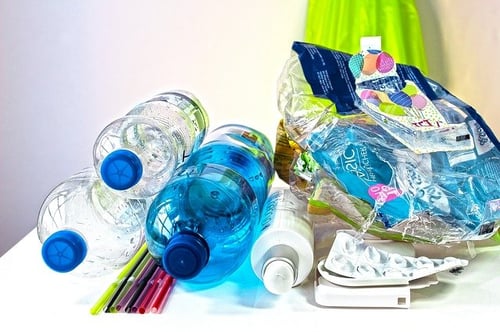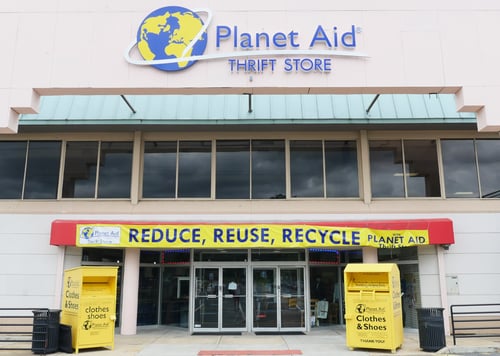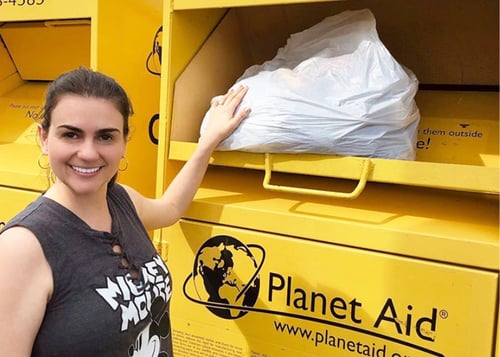
A new year is a new chance to revive a commitment to making small lifestyle changes that will have big returns - for you, your fellow humans, and the generations to come.
For many people around the world, it is tradition to create a list of resolutions to conquer in the New Year. Whether it is exercising more or cutting sweets, many vow to improve themselves when the calendar turns. But why not consider creating goals that will have a global impact? Planet Aid has compiled a quick list of resolutions that will help make your New Year green, eco-friendly, thoughtful, and considerate.
Stay Away from Plastic
It is no secret that climate change is a major issue. From rising carbon emissions to an increase in sweltering temperatures, the signs of global warming are evident.
Plastic is one of the major culprits contributing to Mother Earth's fever. Incredibly detrimental to the environment, plastic is non-biodegradable and, when landfilled, it emits gases that are harmful to our planet. Unfortunately, many of the products we use on a daily basis contain plastic, from shopping bags to water bottles to clothing. The U.S. is a major consumer of plastic, with over 35 million tons generated in 2017. Sadly, only eight percent of that amount was recycled.
In 2021, try to limit the amount of plastic you consume. If you are going shopping for groceries or clothing, bring a reusable bag, preferably one that contains a biodegradable material, such as cotton. Many cities in the U.S. have taxes and fees when businesses provide customers with plastic bags. For example, in Howard County, Md., there is a five cent charge per plastic bag. This is another incentive for people to bring their own bags when shopping.
Another way you can say no to plastic is to swap bottled water for a travel container made of a durable metal. The same goes for straws - switch to one that you can reuse and bring to restaurants. Over 500 million plastic straws are used every day, and they can negatively impact wildlife when disposed of improperly.

Shop Secondhand
Many of the stores you shop from, such as H&M and Zara, sell items that are considered fast fashion. The clothes and shoes are affordable, but they are of low quality (often containing non-biodegradable fabrics) and quickly discarded, which leads to an inordinate amount of textiles piling up in landfills. The fast fashion industry is also one of the most polluting industries in the world, accounting for nearly 10 percent of greenhouse gas emissions.
To combat this, employ some thriftiness as an easy, fun, affordable, and efficient way to recycle clothing. Fortunately, the secondhand clothing sector is booming - expected to grow to 1.5 times the size of the fast fashion industry by 2028. So if there ever was a fashion trend to jump on, this is the one!
Donate, Donate, Donate
Has one of your yearly resolutions been to clear the clutter in your home? Well, this year you can achieve that goal by conveniently donating used clothing and shoes at one of Planet Aid's 19,000 yellow bins. During 2019, Planet Aid helped divert 88 million pounds of clothing and other textile materials from disposal in the United States. Further, when you donate your clothing and shoes to Planet Aid, it not only helps the environment but also provides income for individuals in developing countries when they sell the items we collect from the bins at secondhand markets. This sparks commerce in their community and helps clothe some of the world's most vulnerable populations. Note: Since Planet Aid only accepts clothing and shoes in its donation bins, we encourage you to bring non-textile items to other local charities or thrift centers.


